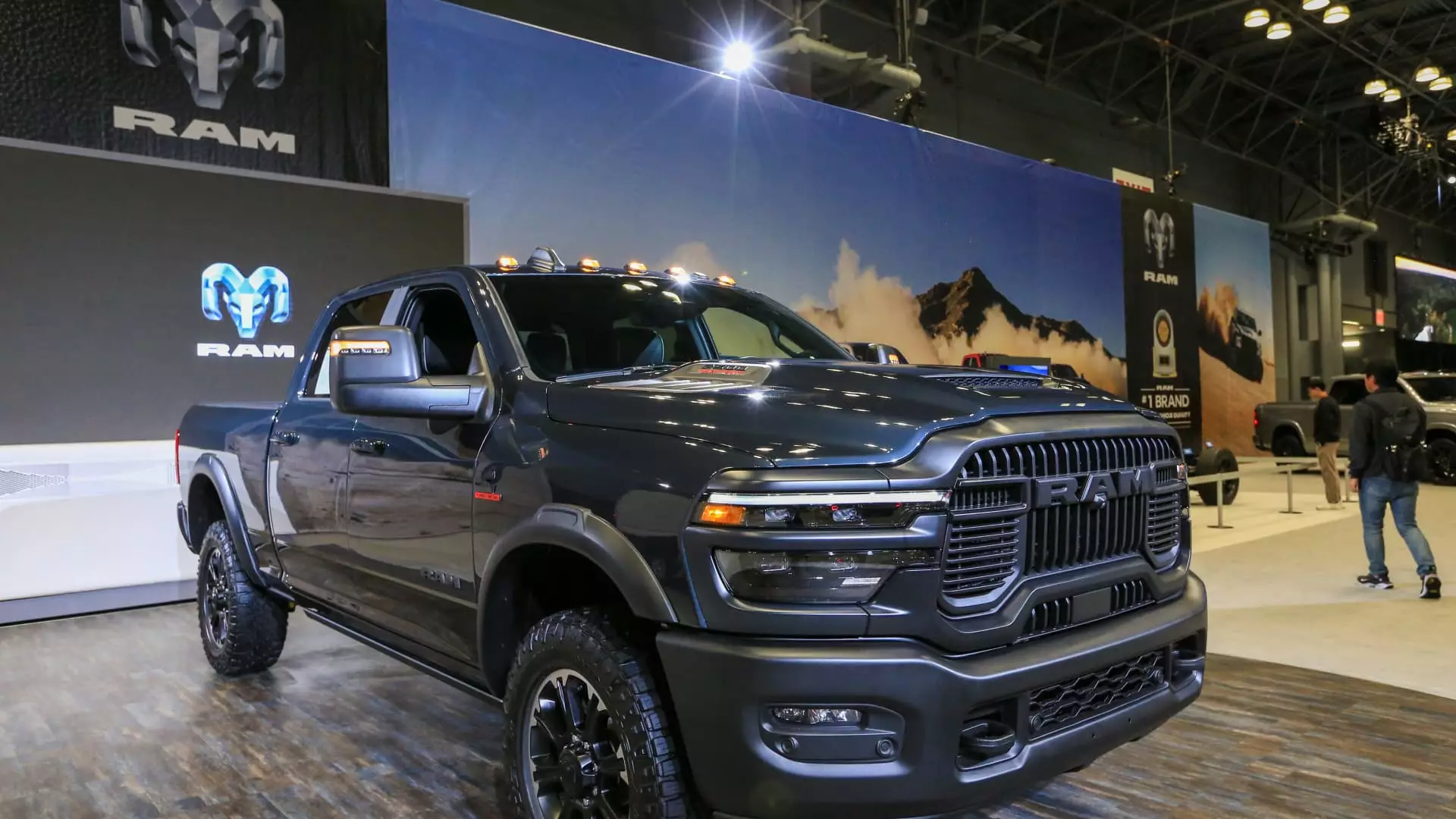Ram Trucks is making waves in the automotive industry with a bold initiative to introduce a groundbreaking warranty plan for its 2026 vehicle lineup. This move, part of a broader 18-month turnaround strategy, signals a significant shift in how manufacturers approach customer service and vehicle longevity. The freshly minted warranty guarantees coverage for 10 years or 100,000 miles, dwarfing the industry-standard coverage of five years or 60,000 miles commonly offered by competitors. This shift not only seeks to restore confidence among loyal customers but positions Ram as a frontrunner in a market plagued by escalating vehicle prices and financing terms.
In an age when the average pickup truck price has surged, extending warranties can be a double-edged sword. Customers increasingly finance their vehicles over lengthy periods, with an eye popping 85% of truck buyers opting for loans that stretch seven years or more. Ram’s CEO, Tim Kuniskis, aptly pointed out that consumers are investing heavily in their vehicles while manufacturers have lagged in providing corresponding assurances. The introduction of a more generous warranty is a savvy response to a market begging for reassurances and could very well transform buyer perceptions about the longevity and reliability of the Ram brand.
Shifting Consumer Expectations
Stepping beyond traditional metrics, Ram’s gamble on an enhanced warranty aligns seamlessly with changing consumer expectations. In a financial landscape where new-car financing terms balloon—record high 84-month loans now account for nearly one-fifth of new purchases—buyers are more discerning than ever. Their growing investment in trucks demands a warranty that protects against potential long-term pitfalls. By extending warranty coverage to 10 years, Ram is not just covering components such as engines and transmissions; it’s addressing the broader concern of vehicle depreciation and long-term reliability.
Moreover, Kuniskis indicates that this warranty could help the brand reconnect with former owners who may have drifted away due to previous product shortcomings. In an authentic acknowledgment of past missteps, this strategic pivot represents an understanding that modern consumers seek not merely transactions but relationships rooted in trust and accountability. Such acknowledgment sets Ram apart from competitors who may still cling to rigid warranty frameworks.
The Financial Risk and Reward Dilemma
Yet, there is inherent risk involved in extending warranties—especially across a mass-produced lineup. Kuniskis candidly noted that while the potential financial fallout from higher warranty claims could be substantial, the perceived value from this enhanced coverage could more than compensate for the cost incurred. This intriguing perspective positions Ram Trucks at the nexus of risk management and customer loyalty.
Investing billions in warranties is no small venture, particularly in an economy where the competitiveness among automotive giants is fierce. There lies a paradox; while longer warranties advocate for customer retention and brand loyalty, they also challenge the business model that thrives on frequent sales. Ram’s strategies necessitate a careful balance that values customer satisfaction without jeopardizing future revenue streams. This ongoing tug-of-war could either redefine the brand’s long-term financial health or lead to dire consequences if quality issues arise.
Competitive Landscape Shifts
With giants like Ford and General Motors leading the full-size pickup market, Ram’s daring warranty proposal is an assertion of market ambition. Current industry standards remain stagnant, offering warranties that could notably lack any competitive edge. While Toyota and others have also offered similar warranties, Ram’s heightened commitment to a longer term promises to shake up consumer perceptions.
For buyers who are weary of the standard five-year warranty, Ram’s offering could be seen as a revelatory and liberating option. The encouragement of longer term ownership not only challenges the industry’s status quo but poses an exciting possibility for brand loyalty over time. If Ram can successfully capture consumers’ confidence in both product durability and warranty coverage, it could very well reposition itself in the minds of buyers—a significant gain in a market characterized by fierce loyalty to brands.
In a landscape where innovations often lag behind consumer needs, Ram Trucks is bravely stepping ahead, signaling a new era for the automotive industry. The ripple effects of this decision may redefine how manufacturers craft their sales strategies, ultimately transforming customer expectations and preferences in meaningful ways.

